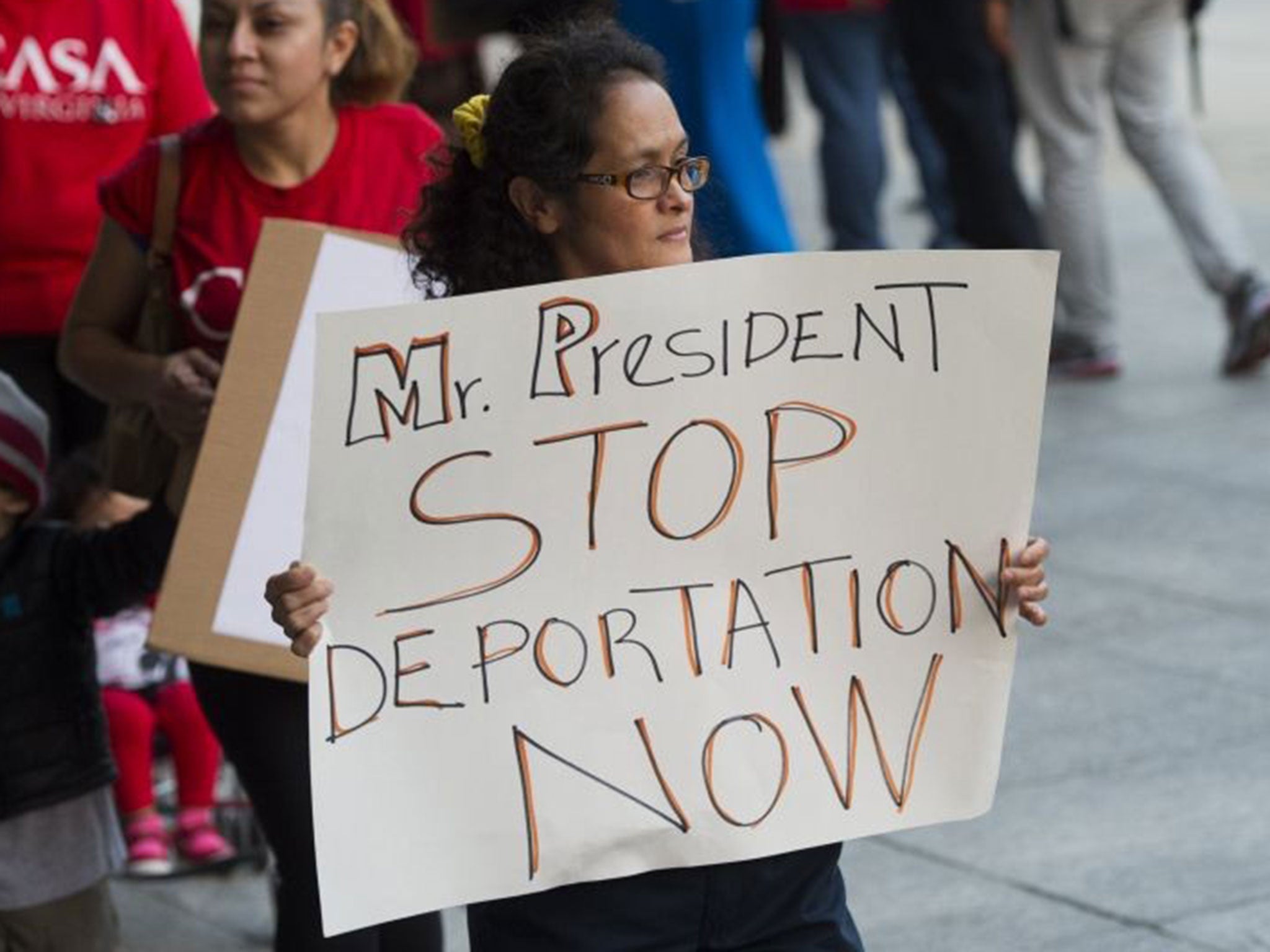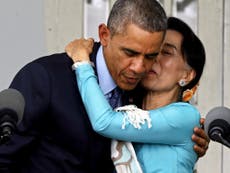Someone tell President Obama he lost the midterms — he's busier than he's been in years
Out of America: He seems fired up by defeat, and has ploughed ahead on climate change, the internet... and now immigration


President Obama, it is said, is a cautious man. He is risk-averse and prefers small concrete steps to bold, overarching, philosophies. He believes (or at least once believed) that rational forces guide politics, that even among the fiercest foes, common sense and enlightened self-interest will ultimately prevail.
Evidently however, lame duckery is a liberating force. His Democratic party's crushing defeat at this month's midterms was supposed to reduce him to terminal irrelevance. Far from it. In the 12 days since, he has reached a potentially far-reaching climate change agreement with China. He has come out boldly in favour of "net neutrality", arguing that the internet is a public utility like gas and electricity, thus opposing the giant telecom providers who want customers to pay more for faster service. But now he's gone for the big one. By the end of the year, says the White House, he will take executive action – bypassing Congress – to at last deliver comprehensive, sorely needed immigration reform.
It's not that no one has tried. George W Bush, a former governor of the border state Texas, who had seen the problem up close, sought reform in 2006. The Senate passed a bipartisan measure, but the Republican-run House of Representatives would have none of it. Last year, the same thing happened. The Senate passed legislation but the House, in thrall to rabidly anti-immigration Tea Partiers, refused to take the matter up.
Nor is it that people don't agree the current situation is a mess. Since the last major immigration reform of 1986, an estimated 11-12 million new illegals have arrived, the vast majority from Mexico and central America. They came for various reasons: the hope of a better life, the desire to escape political turmoil, and most recently, the savage gang violence that last year drove thousands of despairing parents in Honduras, Guatemala and El Salvador to send 50,000 of their children, unaccompanied, to "El Norte".
But nothing was done. Any proposal to alleviate the crisis was denounced as an "amnesty" for felons. The double talk reached a climax during the 2012 presidential election campaign, when the Republican nominee, Mitt Romney (who deep down knew reform was essential), coined the surreal concept of "self-deportation"' by illegals, whereby they might be allowed back at some later, unspecified, date.... As if.
By any yardstick the case for reform is overwhelming. There's the practical argument that to throw out 11-12 million people is a bureaucratic impossibility. There's the even more pragmatic fact that without them the US economy would barely function. Yes, some low-wage illegals may take employment away from Americans: but most of them do jobs that ordinary Americans won't do: toiling in the farm fields of California and Florida, cleaning offices, or mowing lawns and collecting leaves in affluent suburbs that take such services for granted and ask no questions.
Taking the pressure off illegals would free up the police and immigration agencies to focus on the genuine illegal immigration threat posed by criminal gangs, drug runners and terrorists. Then there's the human factor, the "broken families" resulting from deportations. Since Obama came to office in 2009, more than two million illegal immigrants, some here for decades, have been sent back to their country of origin.
Last but not least, reform would restore the ideological bearings of a country that prides itself on being a melting pot, whose every non-native inhabitant is descended from immigrants. The supreme example, of course, is the president himself, son of a Kansas woman of European ancestry, and a Kenyan father who lived in the US for barely four years.
For that, among other reasons, Obama has pressed vigorously for reform. Hitherto however he has deferred to Capitol Hill, hoping that rationality and enlightened self-interest would win the day. That, plainly, is less likely than ever. So, he plans to issue executive orders, as he is entitled to do, maybe this week, certainly before the end of the year.

His plan would include legal status – that is, the unmentionable A-word – for immigrants whose children were born here and so are US citizens, with unqualified right of abode. This would resolve the "broken family" problem. In addition, illegals who came as children will be allowed to stay. In all, between three million and five million people could benefit. There would also be more visas for skilled workers, especially in the high-tech sector, and extra funds to protect the Mexican border – both provisions even the most blinkered opponents of reform do not oppose.
Naturally, howls of Republican protest are guaranteed. The Speaker, John Boehner, insists it is up to Congress to fix the immigration problem, and vows to fight "tooth and nail" any White House orders. Conceivably we could see another government shutdown, though that would probably backfire against the GOP. Others mutter about suing the president for alleged violation of the constitution. At the very least, unilateral action by Obama will worsen the climate when the Republican-controlled Congress takes over in January. The new rules, meanwhile, would last only as long as Obama is in the White House.
But the battle is surely worth it. For Obama, it will bolster his legacy – a consideration that inevitably looms large. There are moreover signs already of a split among Republicans, between the Tea Party zealots who want a shutdown, and moderates who believe that fanaticism will come back to haunt the party – all grist to the Democratic mill. Most important for Obama's party, an immigration overhaul will rally Hispanic voters, a vital Democratic constituency that largely sat out the recent midterms, to turn out in force two years hence. In other words, the issue could be a winner for Hillary Clinton or whoever else is the 2016 Democratic nominee. But above all, it's a winner for America itself.




Join our commenting forum
Join thought-provoking conversations, follow other Independent readers and see their replies